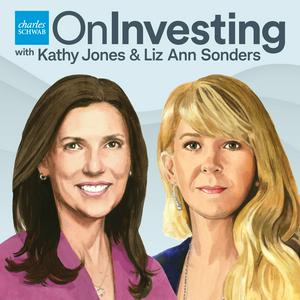First, Liz Ann Sonders and Kathy Jones discuss the current state of the markets, focusing on the recent Federal Reserve meeting, the reaction of the bond market, and insights from the ongoing earnings season.
Then, Kathy Jones is joined by Jack Schwager, author of the bestselling book Market Wizards: Interviews with Top Traders. Jack then discusses a few of the most important lessons he has learned from interviewing elite traders: risk and money management outweigh methodology; flexibility is essential; and understanding how markets have evolved. He and Kathy also discuss the rarity of exceptional performance and the clear distinction between trading and investing.
Jack Schwager’s latest book, Market Wizards: The Next Generation, will be published in June 2026.
On Investing is an original podcast from Charles Schwab. For more on the show, visit schwab.com/OnInvesting.
If you enjoy the show, please leave a rating or review on Apple Podcasts.
Important Disclosures
The comments, views, and opinions expressed in the presentation are those of the speakers and do not necessarily represent the views of Charles Schwab.
This material is intended for general informational and educational purposes only. This should not be considered an individualized recommendation or personalized investment advice. The investment strategies mentioned are not suitable for everyone. Each investor needs to review an investment strategy for his or her own particular situation before making any investment decisions.
All expressions of opinion are subject to change without notice in reaction to shifting market, economic or political conditions. Data contained herein from third party providers is obtained from what are considered reliable sources. However, its accuracy, completeness or reliability cannot be guaranteed.
Past performance is no guarantee of future results.
Investing involves risk, including loss of principal.
Performance may be affected by risks associated with non-diversification, including investments in specific countries or sectors. Additional risks may also include, but are not limited to, investments in foreign securities, especially emerging markets, real estate investment trusts (REITs), fixed income, municipal securities including state specific municipal securities, small capitalization securities and commodities. Each individual investor should consider these risks carefully before investing in a particular security or strategy.
All names and market data shown above are for illustrative purposes only and are not a recommendation, offer to sell, or a solicitation of an offer to buy any security.
Forecasts contained herein are for illustrative purposes only, may be based upon proprietary research and are developed through analysis of historical public data.
Diversification strategies do not ensure a profit and do not protect against losses in declining markets.
Currency trading is speculative, very volatile and not suitable for all investors.
Short selling is an advanced trading strategy involving potentially unlimited risks, and must be done in a margin account. Margin trading increases your level of market risk. For more information please refer to your account agreement and the Margin Risk Disclosure Statement.
Futures and futures options trading involves substantial risk and is not suitable for all investors. Please read the Risk Disclosure Statement for Futures and Options prior to trading futures products.
The books Complete Guide to Futures, Market Wizards, Market Wizards: Interviews With Top Traders, and Market Wizards: The Next Generation, Market Sense and Nonsense, are not affiliated with, sponsored by, or endorsed by Charles Schwab & Co., Inc. (CS&Co.). Charles Schwab & Co., Inc. (CS&Co.) has not reviewed the books and makes no representations about their content.
The policy analysis provided by Charles Schwab & Co., Inc., does not constitute and should not be interpreted as an endorsement of any political party.
Indexes are unmanaged, do not incur management fees, costs, and expenses and cannot be invested in directly. For more information on indexes, please see schwab.com/indexdefinitions
(0126-4MFP)
Hosted by Simplecast, an AdsWizz company. See pcm.adswizz.com for information about our collection and use of personal data for advertising.


